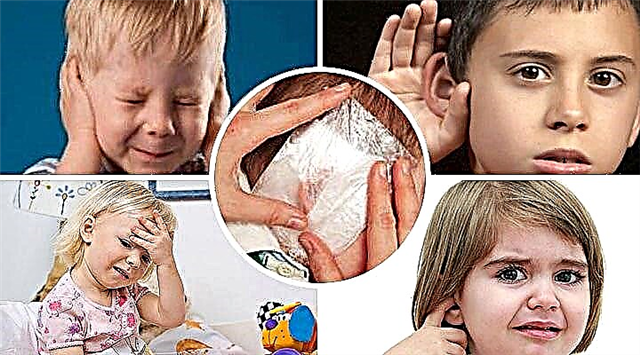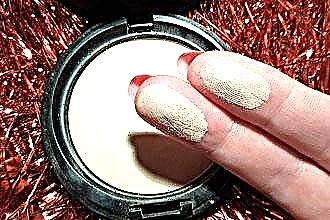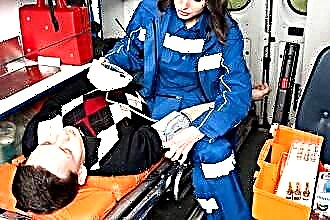Aspirin is a drug from the class of non-narcotic pain relievers and antipyretics, which is considered the most commonly used drug in the world. It effectively relieves pain of low intensity, lowers temperature, and has anti-inflammatory effect. Also, the drug helps to thin the blood. Most people take this drug in a self-medication format, which leads to frequent adverse reactions. The use of "Aspirin" in children has its own characteristics and requires medical advice.
Instructions for use in children
 Despite the fact that Aspirin is one of the most widely used drugs in the world, it is far from the most perfect. To avoid negative consequences when used in children, you must strictly adhere to the instructions and first consult a pediatrician.
Despite the fact that Aspirin is one of the most widely used drugs in the world, it is far from the most perfect. To avoid negative consequences when used in children, you must strictly adhere to the instructions and first consult a pediatrician.
When is it allowed?
Most often "Aspirin" is used as an antipyretic and analgesic agent. It also has pronounced anti-inflammatory and antiplatelet (thinning properties).
Children are allowed to take (although not recommended) acetylsalicylic acid in the following cases:
- headaches, incl. migraine;
- toothache;
- neuralgia;
- mild traumatic pain;
- muscle and joint pain;
- rheumatism and other systemic connective tissue diseases;
- infectious and allergic myocarditis;
- fever more than 38.5 degrees (with the exception of fever in viral infections).
Doses used
The exact dosage will vary depending on the age of the child and the specific medical condition. In any case, you should consult your doctor before using this medication.
When using aspirin as a pain reliever and anti-febrile agent, the following doses are recommended for children:
- 2-3 years - 0.1 g / day;
- 4-6 years old - 0.2 g / day;
- 7-9 years old - 0.3 g / day.
At the age of over 10 years, a single dose is no more than 0.25 g, the maximum daily dose should not exceed 0.75 g. In addition, the amount of the drug can be calculated in accordance with the weight: 1 kg contains 30 mg of Aspirin, which is daily dosage.
If we are talking about the use of a medication as an anti-inflammatory agent (for example, with rheumatoid arthritis), then the single dosage will be as follows:
- 1 year - 0.05 g;
- 2 years - 0.1 g;
- 3 years - 0.15 g;
- 4 years - 0.2 g;
- 5 and more years - 0.25 g.
You need to take the tablets after meals with water. If the infant's diet contains only breast milk, the mother should take Aspirin after breastfeeding.
In all cases, the maximum daily dose should not exceed 1 gram.
Contraindications
The drug is absolutely contraindicated if the patient has the following diseases:
- peptic ulcer of the stomach or duodenum in the acute stage;
- pathologies characterized by a violation of the blood coagulation system (hemophilia, hemorrhagic vasculitis, autoimmune thrombocytopenic purpura, von Willebrand syndrome and others);
- individual allergic hypersensitivity to acetylsalicylic acid, other non-steroidal anti-inflammatory drugs (NSAIDs), and auxiliary ingredients of tablets;
- the drug is contraindicated for children in the presence of hyperthermia associated with viral infections (flu, measles, chicken pox, etc.). This is associated with a high risk of developing Reye's syndrome.
Can be used with caution in the following conditions:
- peptic ulcer in remission;
- pathology of the digestive tract (hyperacid gastritis, gastroesophageal reflux disease);
- bronchial asthma;
- gout;
- renal and hepatic impairment.
Children under 3 years old: can I take Aspirin?
Acetylsalicylic acid for children under 3 years of age is prescribed on the same grounds as for older children. At this age, the risk of developing aspirin asthma and allergic reactions is higher, but the likelihood of Reye's syndrome is less. The baby will be better able to perceive rectal suppositories, which are available only with a doctor's prescription.
However, during the period of breastfeeding, it is better to abandon Aspirin completely, and not only for the newborn, but also for the mother, since this substance easily penetrates from the female body into milk. In any case, it is advisable to refrain from using the drug and consider alternative treatment.
Side effects
Despite the seeming safety, the drug has a wide range of side effects, including fatal ones. Most often, they appear with the wrong dosage and long-term use:
- allergic reactions manifested by a rash, Quincke's edema, asthma attack;
- thrombocytopenia;
- dyspeptic symptoms (heartburn, abdominal pain, nausea, diarrhea);
- anemic syndrome;
- headache;
- the development of ulcerative lesions of the gastrointestinal tract (GIT);
- bleeding from the gastrointestinal tract (especially when using rectal suppositories);
- liver dysfunctions;
- hearing impairment;
- diabetes mellitus (due to damage to the insulin apparatus and impaired glycogen formation).
- aspirin asthma (manifested by a triad of symptoms: polyposis sinusitis, asthma attacks and intolerance to all non-steroidal anti-inflammatory drugs).
Reye's (or Reye's) syndrome is considered the most severe complication that can be associated with taking Aspirin. This pathology occurs in children under 15 years of age due to the use of acetylsalicylic acid with fever of viral or bacterial origin. In this case, cerebral edema develops, which leads to encephalopathy, as well as acute liver failure.
It is manifested by the following symptoms:
- sudden onset of nausea and incessant vomiting (this is the very first sign, upon the appearance of which it is necessary to call an ambulance);
- disturbances of consciousness of varying degrees - from mild stupor to coma;
- choking, convulsions, jaundice;
- in the blood there are signs of liver failure (increased transaminases, bilirubin).
Despite the fact that this is a fairly rare disease (1-2 per 100,000), the syndrome is characterized by a very high mortality rate - on average about 30% (with the development of coma - 80%).
What is the best substitute for acetylsalicylic acid in a child?
The group of drugs NSAIDs contains a large number of names, many of which are approved for use at any age and have significantly fewer contraindications and adverse reactions. Instead of "Aspirin" children can use the following remedies:
- "Paracetamol" (acetaminophen) - you can use any form of the drug: tablets, syrups, rectal suppositories. It is used with caution in babies in the first month after birth. Trade names: Efferalgan, Panadol, Tylenol, Tsefekon.
- "Ibuprofen" - the safest NSAID, can be used from 3 months in any form. Trade names: "Maksikold", "Nurofen", "Ibufen", "Burana", "Ipren", "Dolgit", "Faspik".
- "Diclofenac" - allowed from the age of 6, rectal forms - from the age of 12. Has a pronounced analgesic and anti-inflammatory effect, but weak antipyretic. The following options are on sale: Voltaren, Ortofen, Naklofen, Rapten, Feloran.
All of the above medicines are allowed during lactation.
In addition to Aspirin, the following products are not recommended for children:
- "Analgin" (sodium metamizole);
- "Amidopyrine";
- "Phenacetin";
- "Nimesulide" - allowed after 12 years.
Conclusions
It is allowed to give acetylsalicylic acid to children only in extreme cases, when an urgent need to bring down the temperature, and there are no alternative means at hand. Before taking it, you must read the instructions and find out possible contraindications. In no case should the drug be used in children under 15 years of age with a fever of viral origin, as this can provoke a fatal complication. The safest substitutes for Aspirin are Paracetamol and Ibuprofen.



